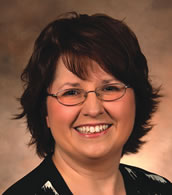|
Improving Opioid SafetyAmy Ludwikowski, MD
Opioids or narcotics are a category of pharmaceutical agents (both recreational and prescribed) that affect the opioid receptors in the brain, commonly causing pain relief and euphoria, but can also cause sedation, confusion, nausea, vomiting, constipation, or impaired breathing. The effects on breathing is the main mechanism causing death in overdose. Opioids can be recreational, like heroin, or available by prescription (hydrocodone, oxycodone, morphine, methadone). The longer one uses opioids, the greater the chance for side effects, misuse, and possible addiction. This “length” is not known but may be shorter than we previously thought. Given the risks and the concerns regarding opioid use, how can you keep yourself and your family safe?Think twice about accepting controlled substances from your prescriber (narcotic pain medications, benzodiazepine sleeping/anxiety medications). The health care community’s hesitance in prescribing these medications does not just stem from concern about our current problem. Long-term use of controlled substances is not usually the best treatment for many medical conditions as they can have significant side effects, and can contribute to substance use disorder. Four out of five heroin addicts started by abusing prescription pain medication. Do not keep controlled substances in your home and do not share them with other people. In 2016, 3.6% of adolescents aged 12–17 reported misusing opioids over the past year. The vast majority of this misuse was due to prescription opioids, obtained from other people (friends and family), not heroin. If you take controlled substances, secure them, in a lockbox, to prevent accidental overdose by family and children, and theft/misuse. Dispose of your medications safely. Controlled substances should not be flushed down the toilet or the sink. Medication take-back locations are available in every community. Convenient locations for take-back include police departments, local pharmacies, and health care facilities. Please call to confirm that they will accept controlled substances. The Dose of Reality website (doseofrealitywi.gov) also has an online tool to find local take-back locations. Take your medications as prescribed, and do not combine them with other substances, including alcohol and benzodiazepines (prescription medications used for sleep or anxiety). Risks of respiratory depression and death increase with the number of substances used. If you take opioids chronically, have naloxone available. Naloxone is an intranasal medication that can treat an opioid overdose. Anyone who takes opioids chronically (prescription or recreational) should have naloxone available in the case of accidental overdose. Naloxone is available without a prescription. If a loved one is abusing narcotics keep naloxone on hand. Naloxone is not a substitute for medical attention. If naloxone is used, call 911 and get medical attention, as the standard dose of naloxone may not last long enough, depending on the type of opioid used and the amount used. If you have a problem with opioids (prescription or recreational), seek treatment. Treatment for opioid dependence is successful and saves lives. Dr. Ludwikowski is now certified by the American Board of Preventive Medicine with a sub-specialty in Addiction Medicine. Addiction Medicine is a medical subspecialty that deals with the diagnosis, prevention, evaluation, treatment, and recovery of persons with addiction, of those with substance-related and addictive disorders, and of people who show unhealthy use of substances including alcohol, nicotine, prescription medicine, and other illicit and licit drugs.
Amy Ludwikowski, MD – OakLeaf Clinics, Inc – Amy Ludwikowski, MD |



 There is much media attention and community discussion regarding the “opioid crisis” and the effects both locally and nationally. Deaths from unintended drug overdoses have been rising sharply in the recent years, accounting for close to 17,000 deaths in the United States in 2011, compared to 5,528 deaths in 2001 (National Institute on Drug Abuse). U.S. life expectancy continues to decline for the third straight year caused by drug overdoses, alcohol abuse and suicides (JAMA).
There is much media attention and community discussion regarding the “opioid crisis” and the effects both locally and nationally. Deaths from unintended drug overdoses have been rising sharply in the recent years, accounting for close to 17,000 deaths in the United States in 2011, compared to 5,528 deaths in 2001 (National Institute on Drug Abuse). U.S. life expectancy continues to decline for the third straight year caused by drug overdoses, alcohol abuse and suicides (JAMA).